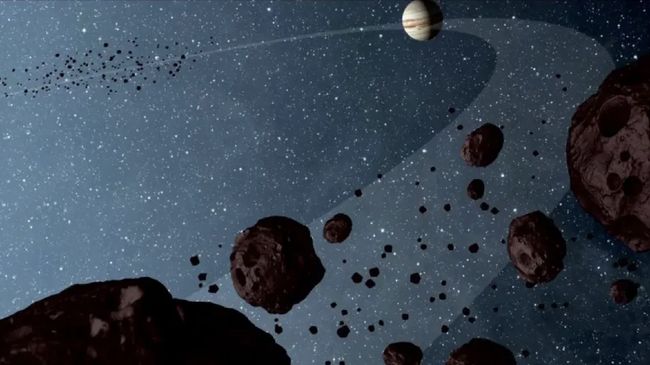Jakarta, CNBC Indonesia – A mysterious, tiny object has been detected near Earth. The object which is categorized as an asteroid that seems to always follow the Earth is named 469219 Kamoʻoalewa by scientists.
In a recent study, researchers concluded that it is possible that Kamoʻoalewa was once part of the Moon. Because this asteroid is known not to come from Mars and Jupiter, which have thousands of objects around the inner solar system.
The name Kamoʻoalewa comes from a Hawaiian song that refers to “offspring walking alone”. This asteroid is known as a quasi-satellite, which means it orbits the sun but approaches Earth.
It was discovered in 2016 in Hawaii, and can only be observed every few weeks in April. The asteroid is the size of a ferris wheel, 150-190 feet in diameter and as close as approximately 9 million miles from Earth. However this can only be detected using some of the largest telescopes on Earth.
But while studying Kamoʻoalewa in southern Arizona, University of Arizona astronomers noticed something unusual about it.
This asteroid reflects light and matches lunar rocks taken from NASA’s Apollo missions. Astronomers were led to believe that the asteroid might have come from the moon, but they weren’t sure how something could have escaped from it.
“I looked through every near-Earth asteroid spectrum we had access to, and none matched,” Ben Sharkey, a graduate student at the university, said in a statement.
Sharkey and Vishnu Reddy, advisor and professor of moon and planetary sciences in Arizona, even debated whether the asteroid really came from the moon and studied it for more than three years.
Having missed the opportunity to observe it in 2020 due to the Covid-19 pandemic, the team was able to see Kamoʻoalewa this year.
The results seem to be in line with their predictions. The findings were published in the journal Nature Communications Earth and Environment, Thursday (11/11/2021).
Another clue that gave Sharkey and his team the assumption is that Kamoʻoalewa’s orbit around the Sun is similar to Earth’s, but only more tilted.
Renu Malhotra, study co-author and Arizona professor of planetary science, said it was not typical for an asteroid to have this orbit, and had been in this orbit for about 500 years.
As for how the asteroid broke apart, astronomers are still trying to determine the cause. The theory the team has put forward is that Kamoʻoalewa was the product of an ancient asteroid impact or that was captured in its orbit from another near-Earth object.
(tfa/tfa)
– .


